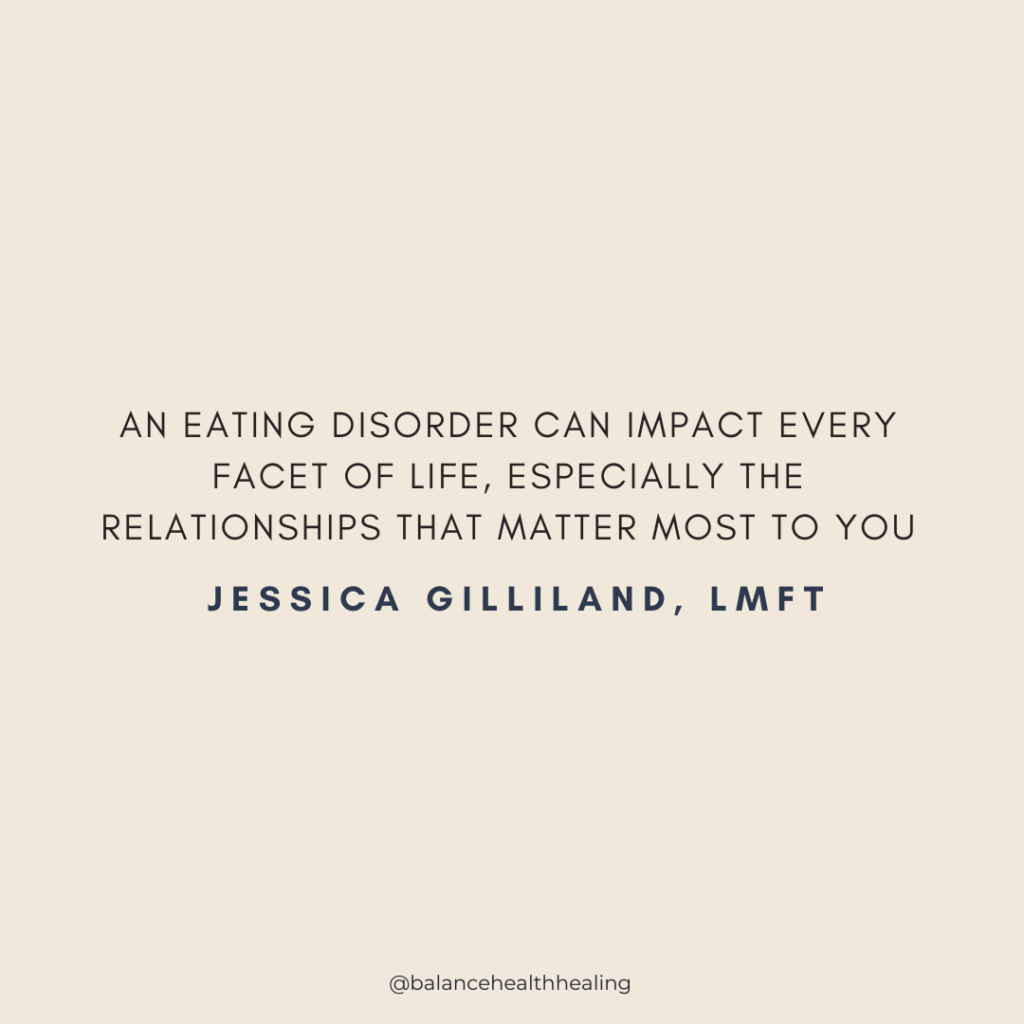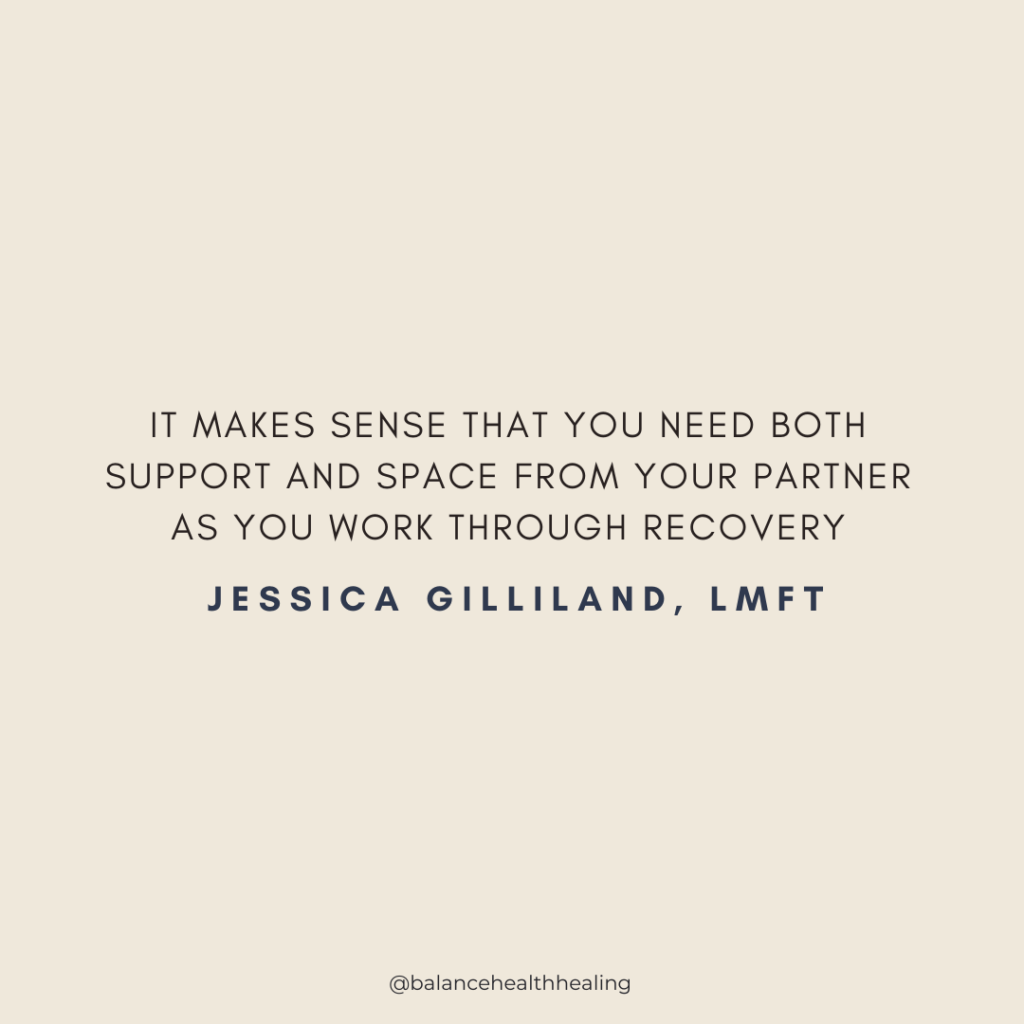An eating disorder can impact every facet of life, especially the relationships that matter most to you. If you are in a romantic relationship, and have an eating disorder, there have likely been some difficult conversations about how your ED impacts your relationship, and vice versa. Even though it’s challenging, navigating through eating recovery while in a relationship can also bring depth and strength to both your recovery and your connection with your partner.
 Over the next few blog posts, I’ll be answering some common questions about handling different aspects of recovery while in a relationship. Let’s dive in!
Over the next few blog posts, I’ll be answering some common questions about handling different aspects of recovery while in a relationship. Let’s dive in!
Q: How do I help my significant other understand my experience with my eating disorder?
A: It can feel really hard to explain the experience of an eating disorder to someone who has never had one themselves. Here are a few thoughts that might help:
- Don’t stress about explaining yourself perfectly or getting a complete understanding from your significant other. Gaining understanding is a process, and will take time and experience together. Remember that you and your partner don’t have to understand each other perfectly in order to give and receive meaningful support.
- Invite them to join a therapy session with you. Talk with your therapist about the possibility of inviting
 your partner to join a session occasionally. Your therapist can support you in explaining how you’re feeling, and in addressing concerns that you and your partner might have about recovery.
your partner to join a session occasionally. Your therapist can support you in explaining how you’re feeling, and in addressing concerns that you and your partner might have about recovery. - Share part of a journal entry with your partner, then talk about it together. Sometimes sharing something you’ve written down can be a starting point for a conversation about how you’re feeling.
Q: How can my significant other support me without smothering me?
A: It makes sense that you need both support and space from your partner as you work through recovery. You can’t do recovery alone, but your partner also can’t make recovery happen for you by watching your every move. Some tips for balancing support and space in your relationship:
- Make a structured plan for checking in with your significant other about recovery. Schedule the times you’ll check in, and make an agenda for what you’ll talk about.
- For example:
Check-in every night at 9:30
1. Be accountable for any ED behaviors from the day.
- Share a recovery victory that happened today.
- Make a plan for any challenges coming up tomorrow.
Scheduling daily or weekly check-ins can help you and your significant other stay connected, without feeling like you have to constantly be talking about the eating disorder and nothing else. Let the schedule of your check-ins do the work of starting the conversation.
- Share your treatment goals with your partner, and involve them where possible. Tell your partner what you’re working on with your dietitian and your therapist. If your partner has no idea what’s happening in your recovery, they are more likely to feel like they have to monitor your every move. If you feel like you’re being watched or babysat, you’re likely to feel frustrated and irritated. On the other hand, if you can share what your goals are, and specific ways your partner can help with those goals, you can get support without feeling suffocated.
Q: Won’t talking about my eating disorder just make my partner feel worried and stressed?
A: This is a very common concern that can feel really complicated. A few things to remember:
- Communicating consistently about your recovery is likely to be more helpful than harmful. Your partner is likely to worry more if you don’t talk consistently about how things are going.
- You are not responsible for managing your partner’s worry or stress. It’s up to them to ask for support from you or from others as they manage their own emotions and needs. Allowing your partner to feel their emotions and seek needed support is a healthy way to manage challenges in a relationship. Likewise, your partner should not assign you responsibility for their emotions.
- Sometimes worry and concern can be helpful to your recovery and relationship. If your partner is genuinely expressing concern, that may be valuable feedback that can support your recovery process.
Tune in to my next blog post for more Q and A on relationships!

